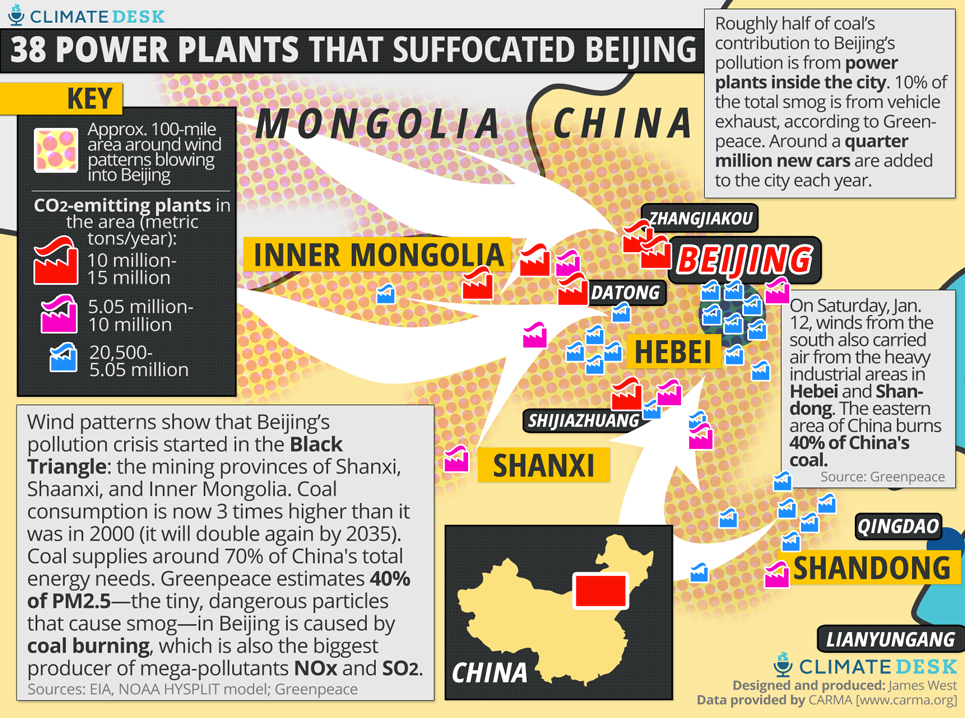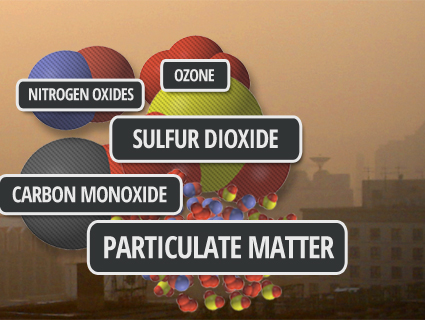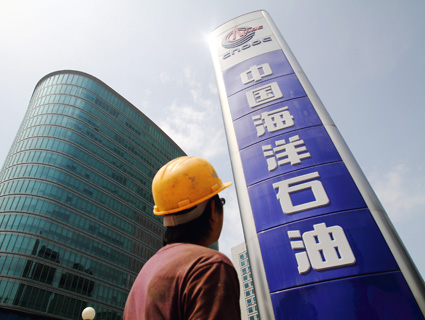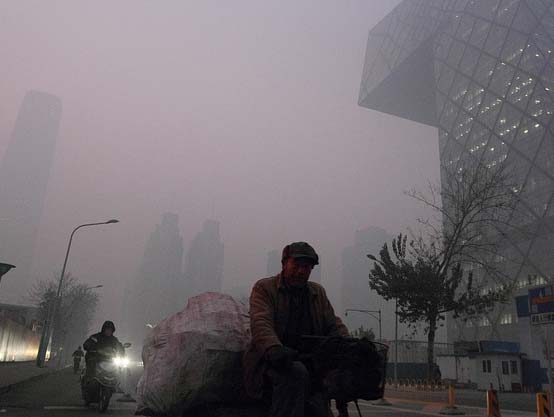
In 2008, Beijing pulled off what some (myself included) considered a miracle: banishing choking smog to reveal an Olympic city bathing in blue. They reportedly took a million of the city’s 3.3 million cars off the road, and closed down factories and construction sites.
But try as they might, in the years since the Olympics, city officials have rarely replicated that success, despite replacing the city’s coal-fired power stations with natural gas, capping its annual coal consumption at 20 million tons by 2015, forcing heavy trucking to go nocturnal, and limiting car exhaust and construction dust.
The recent crisis that featured “beyond index” rates of pollutants and a thick, blanket of smog that choked the city for days, proves why Beijing just can’t do it alone. China’s enormous boom in cars often gets blamed, but in fact the bigger problem lies farther afield.
The chart above shows that without controlling emissions across the country—especially from neighboring coal-producing provinces like Hebei and Shanxi—prevailing winds will keep blowing toxic smog Beijing’s way. Climate Desk has compiled data from NOAA, Greenpeace, and CARMA to show 38 power plants that lie in the path of the winds that brought smog to Beijing during its pollution crisis from January 10-12.
The pollution is bad news for people’s health: A recent study by Greenpeace East Asia and Peking University’s School of Public Health estimated that 8,572 premature deaths occurred in four major Chinese cities in 2012 because of the smog.
A note about the data: CARMA produces a detailed list of carbon-emitting power plants around the world—but for China, it can be tricky to get their precise locations and emissions because there is no public disclosure database provided by the government. The area displayed on the map is a rough approximation.
















